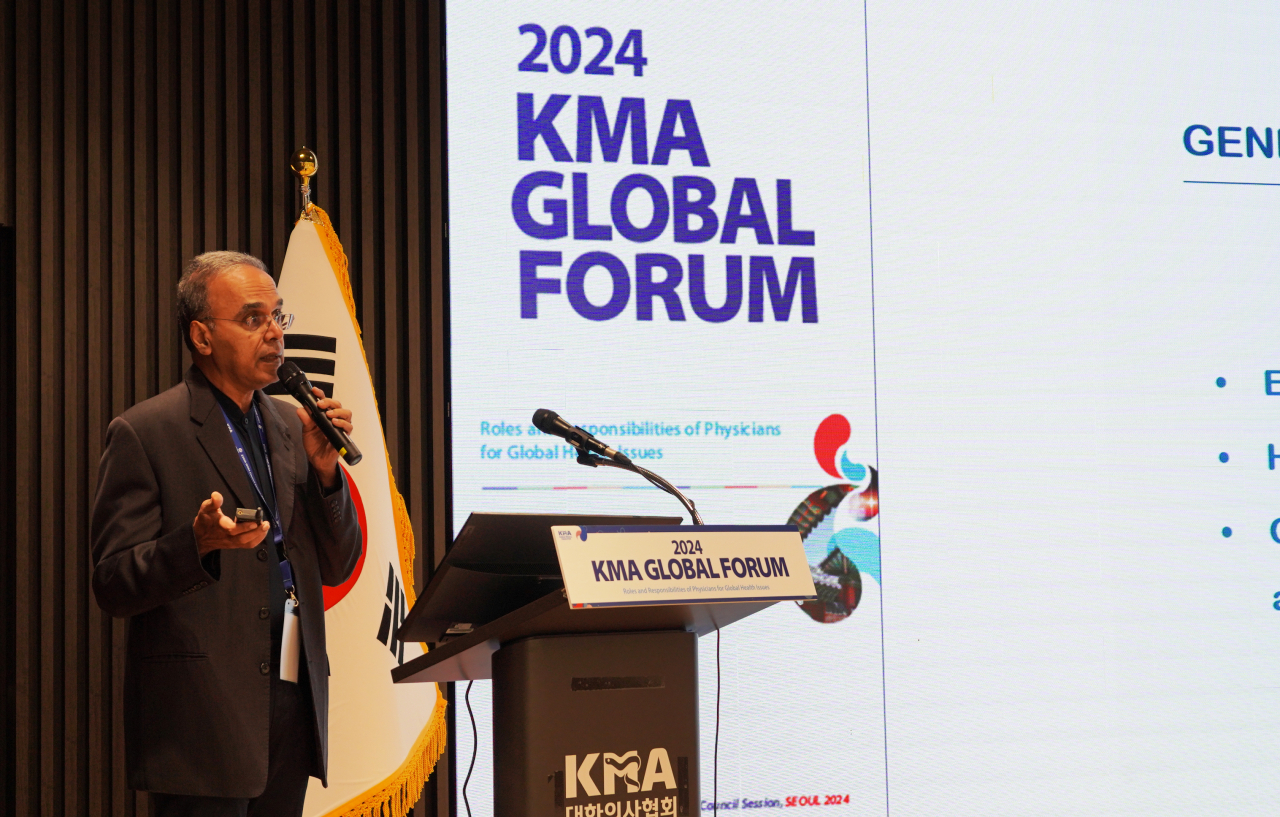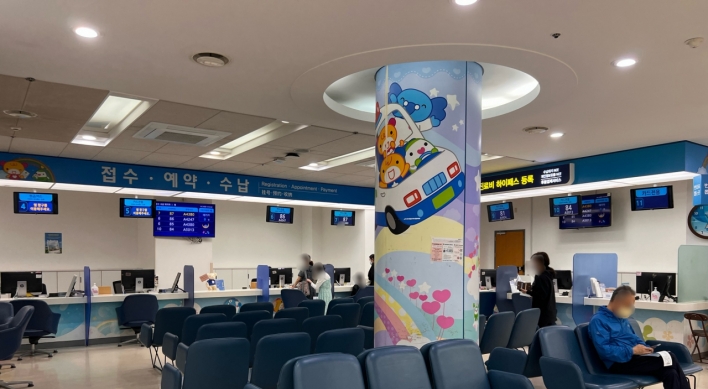Ministry to hire retired doctors to fill medical void
World Medical Association’s incoming chief says physician shortage is also problem in other countries
By Park Jun-heePublished : April 17, 2024 - 14:27

The Health Ministry on Wednesday started recruiting retired or soon-to-retire physicians to address rural healthcare deserts and essential medical fields as the junior doctors’ mass resignation entered its ninth week.
The ministry on Tuesday afternoon opened a center for senior doctors at the National Medical Center in Jung-gu, central Seoul, to entice senior doctors nearing retirement or inactive physicians with experience working in university hospitals to extend their years of service in vital medicine, rural areas and public health care institutions.
The ministry explained that the project aims to broaden the reach of high-quality medical services and access in rural communities, as people often flock to big hospitals in urban areas for treatment.
An official at the center told The Korea Herald that job recruitment is always open. The official added that senior doctors would be allocated based on medical institutions’ demand and availability, declining to comment on the employment quota.
“Since the government has continuously talked about utilizing senior doctors to address the shortage of doctors and salvage essential medical fields, (the government) will continue to come up with supporting measures to enhance their participation and effectiveness,” Health Minister Cho Kyoo-hong was quoted as saying.
Amid challenges in health care, medical experts underscored physician shortage as a “global problem not to set aside” during the Korean Medical Association’s Global Forum held Tuesday.

“Each country has unique issues, but we have things that overlap: staffing issues. Many countries are having such issues -- the UK, our host (South Korea) and my own country (Malaysia),” said Ashok Philip, the president-elect of the World Medical Association.
According to Philip, the Malaysian government proposed having more doctors to confront the problem.
“Up to 1995, there were three medical colleges in Malaysia. Since then, 29 more have been opened. There are now more than 3,000 local graduates and 1,000 graduates from foreign colleges, and the number of doctors rises by about 5,000 yearly,” he noted.
However, the medical pundit pointed out that simply increasing the number without changing anything else will not do the trick, noting that the public sector still lacks hospital beds and young doctors are not receiving sufficient training.
“The solutions will be hard to find, but consultation and cooperation (with the government) are needed,” he said.
Zion Hagay, president of the Israeli Medical Association, also agreed that the demand for more physicians and field-specific issues are universal.
To tackle the crisis, he noted that the government should increase job opportunities and available positions for junior doctors, explaining that increasing the number of medical students alone will not resolve the problem.




![[Grace Kao] Hybe vs. Ador: Inspiration, imitation and plagiarism](http://res.heraldm.com/phpwas/restmb_idxmake.php?idx=644&simg=/content/image/2024/04/28/20240428050220_0.jpg&u=)

![[Herald Interview] Mom’s Touch seeks to replicate success in Japan](http://res.heraldm.com/phpwas/restmb_idxmake.php?idx=644&simg=/content/image/2024/04/29/20240429050568_0.jpg&u=)


![[News Focus] Lee tells Yoon that he has governed without political dialogue](http://res.heraldm.com/phpwas/restmb_idxmake.php?idx=644&simg=/content/image/2024/04/29/20240429050696_0.jpg&u=20240429210658)









![[Today’s K-pop] Seventeen sets sales record with best-of album](http://res.heraldm.com/phpwas/restmb_idxmake.php?idx=642&simg=/content/image/2024/04/30/20240430050818_0.jpg&u=)